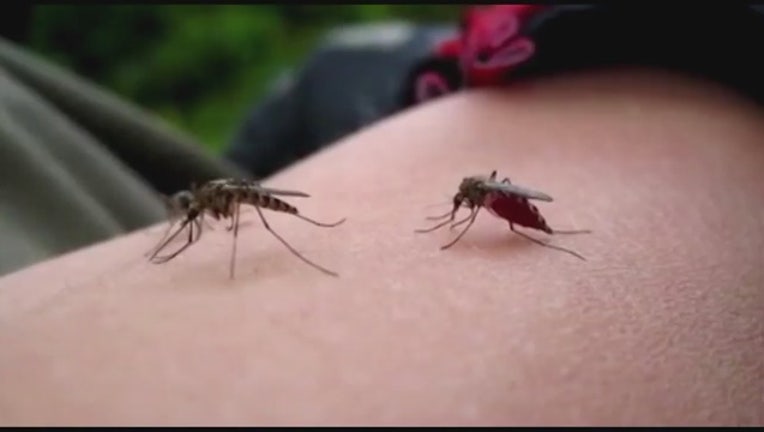Michigan health department says one dead from West Nile

DETROIT (WJBK) - The Michigan Department of Health and Human Services (MDHHS) said Thursday that there have been eight confirmed cases of West Nile Virus in Michigan this year and an Wayne County resident has died from the illness.
The press release from the MDHHS stated that there have been eight confirmed cases with six of them happening in Oakland and Wayne Counties. Oakland has one case, Wayne as five, and Berrien and Kent Counties have one each.
The state is urging everyone toe not let up on protecting themselves from mosquitos, even as cooler weather approaches.
"As the fall approaches, it's vital to remember that mosquito bite protection should continue until the weather significantly cools," said Dr. Eden Wells, Chief Medical Executive at the MDHHS. "It only takes one bite from an infected mosquito to cause a severe illness, so take extra care during peak mosquito-biting hours, which are dusk and dawn for the mosquitoes that transmit West Nile virus."
Most people who are infected with West Nile will not develop any symptoms illness. Some become sick three to 15 days after exposure. Typically, symptoms include mild illness with fever while about one in 150 will be severely ill.
Mild illness may include headache, body aches, joint pain, vomiting diarrhea, or rash. Severe symptoms of WNV are associated with encephalitis or meningitis, and may include: stiff neck, stupor, disorientation, coma, tremors, muscle weakness, convulsions and paralysis. People 60 and older are more susceptible to these severe symptoms.
The MDHHS recommends the following steps to protect yourself:
Maintain window and door screening to help keep mosquitoes outside.
Empty water from mosquito breeding sites around the home, such as buckets, unused kiddie pools, old tires or similar sites where mosquitoes lay eggs.
Use nets and/or fans over outdoor eating areas.
Apply insect repellents that contain the active ingredient DEET, or other EPA approved product to exposed skin or clothing, and always following the manufacturer's directions for use.
Wear light colored, long-sleeved shirts and long pants when outdoors. Apply insect repellent to clothing to help prevent bites.

